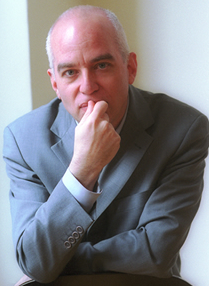Crying Wolff? News As We Knew It Dies -- In 8 Years.

Leave it to YouTube to defend "the idea of news" and a Vanity Fair media columnist (and online news aggregator) to put a deadline of eight years on its demise.
Two newspapers in two different two-newspaper towns (Seattle and Denver) have died in the last month. Journalists are being laid off in droves, even at surviving publications. Indeed, Conde Nast, publisher of Vanity Fair, is bracing for another round of layoffs, according to Crain's New York Business.
So it was Kevin Yen, the director of strategic partnerships at YouTube, who said that despite any turbulence that the Internet is causing, as paid journalists compete with unpaid rivals in publishing videos, stories or other content instantly and globally, "there is no debate the idea of news does not disappear.'' But that provided an opening for, as Business Week media columnist Jon Fine would put it at a morning panel of the 2009 Business Week Media Summit, Vanity Fair's Michael Wolff to usher in and time stamp the arrival of the apocalypse.
"You're saying there still will be news," Wolff responded. "There is a debate."
The debate is whether traditional journalism, where paid professionals gather, fact-check and present news that they have spent large amounts of travel and other dollars to deliver -- that "idea of news" -- will survive. Whether the Associated Press, the New York Times and its brethren (aka, Business Week) will survive. Wolff, who runs a news aggregation site called Newser and is the author of a recently released biography of News Corporation chief Rupert Murdoch, said ... no. This "idea of news" is going to die. Soon.
"What we are really talking about is an entire transformation in the nature of news, in who provides news, in what news will be like and what we think of as news. So, yes the AP and the New York Times and this whole kind of ideal of what news was disappears. The only question is does it disappear in this recession or in the next five years or the next eight years. Eight is absolute max here."
There's some other recent ammunition that feeds into the apocalyptic sturm and drang. If you haven't yet, you might want to take the time to read New York University adjunct professor Clay Shirky's recent post, Newspapers and Thinking the Unthinkable.
Or the Pew Project for Excellence in Journalism's State of the News Media 2009.
So far, it's pretty hard to argue that conventional journalism, where you send reporters to places to gather facts, sift them, and then present them, can win the economic war against a collective of humanity equipped with the tools of production (cellphones, portable computers, digital cameras, local knowledge) that can put raw, semi-filtered or fully filtered content up on the Web and let the recipients do the rest of the filtering.
And it's hard to argue that the hunter-gatherers of news have been particularly skilled at figuring out how to organize or fund their efforts, in an online economy. "The idea of news" from this group or its executive support teams did not produce Web portals, news aggregation services (think Google News) or ... video sharing (think YouTube). Yes, a group of newspapers was smart enough to believe jobs would be advertised and filled online, creating CareerBuilder. But two guys in a small office in San Francisco took away the classified ad business that supported much of this hunting and gathering.
Leave it again to Yen to size up the situation. He says it's a great time to be in the production of news. The path to getting your word, sound or visual out there is ... short, fast and free. Any and all ideas can be put out, as news or just ideas, and vetted online, at next to no cost.
"It's a great time to put ideas to the test,'' he said.
So here's today's online poll. How many years do you give it before the AP, the New York Times and the other major national and international hunter-gatherers of news cease to exist?
[poll id="109"]
